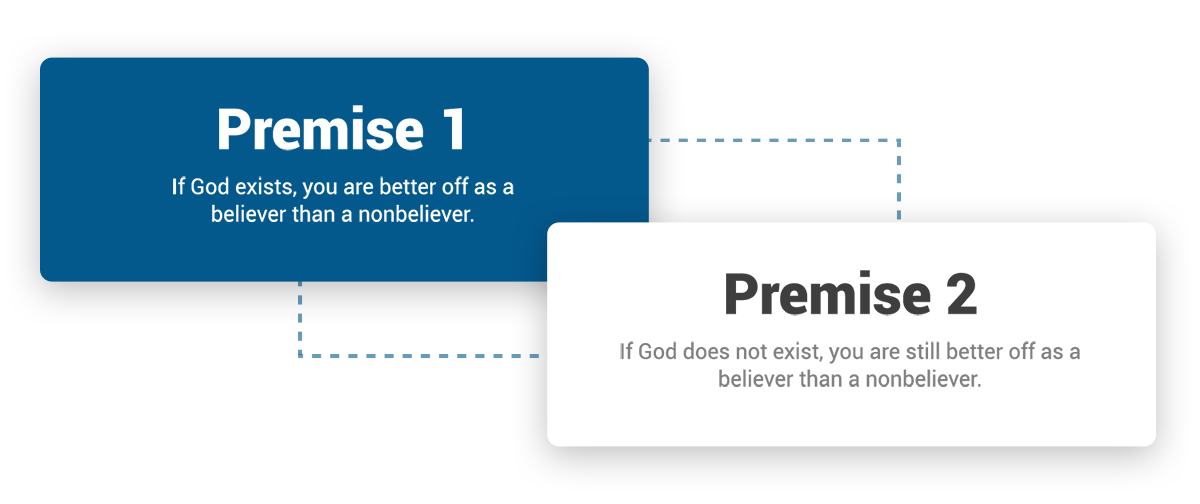WHO IS JESUS AND WHY IS HE THE ONLY
WAY TO GOD?
WHO IS JESUS AND WHY IS HE THE ONLY
WAY TO GOD?
Let’s Explore The Answer
Let’s Explore The Answer
In the history of the world, few people have impacted society more than Jesus. His teachings have changed the course of countries, influenced constitutions, and sometimes even caused wars. His followers have been outlawed and killed throughout time and yet Christianity continues to grow as the top religion in the world with roughly 30% of people (2.3B) claiming it as their faith.
But who is Jesus, really? Historically, four books of the Bible offer the most robust accounting of his life. But even outside of these scriptures, multiple references to Jesus’ life and death exist. Jewish historian Josephus wrote about Jesus in 93 AD, mentioning that Jesus was called the Christ and was crucified by Pilate. A little later, in 116 AD, Roman historian Tacitus referenced Nero’s burning of Rome and killing of Christians. He explained that Jesus was executed and a religious movement quickly followed his death. Neither man was a follower of Jesus, but both confirm the main tenets of Jesus’ death in the scriptures.
The most information about Jesus’ life is found in the first four books of the New Testament: Matthew, Mark, Luke, and John. All four books were written within 50 years of Jesus’ death. People who witnessed the life, death, and resurrection of Jesus were still alive as books of the Bible began to be dispersed in the first century. For example, in a letter from Paul to the church in Corinth he references 500 people Jesus appeared to, “most of whom are still living”. Overall, the fact that Jesus was a wise teacher with a large following, died for crimes he didn’t commit, his tomb was found to be empty, and soon after gatherings of believers in Jesus began to grow and multiply all over the world, is seldom debated. What is debated, however is who Jesus really was.
Skeptics, atheists, and believers have different responses to this question.
Living On The Edge
Learn More About God
Sign up to gain immediate access to free sermon MP3s, devotionals, blog content, and more.


What The Bible Says
Christians agree that Jesus was one of the wisest people to ever live, but they don’t accept that a person can pick and choose what they like or don’t like about what He said. Yes, Jesus hung out with the homeless and invited people to experience God’s love, but he also challenged the religious in ways that still hold true today. Jesus said you can’t love both God and money. He challenged his disciples to not just listen to his teachings but to go out and put them into practice. Likely his most controversial saying is found in John 14:6, where Jesus says, “I am the way and the truth and the life. No one comes to the Father except through me.”
Jesus was called many things, but one of the most important titles was the Son of God. As the disease of sin has separated man from God’s perfection, God had a plan. He would send his own son to take away the sin of the world, and to pave a way for people to reconnect with their heavenly father. This was God’s gift to the world; His master plan to fix what was broken in the beginning. A person can’t earn their way into heaven because it’s given as a gift of God. Jesus is the only way to heaven because any other way would require attempts to achieve perfection and any and all attempts would fail. Humans are imperfect. So God did what we could not, he made a simple way for us to be with Him forever – all we have to do is believe.
What would happen if you embraced the possibility that the God of the Bible really did create the world and really does care for you?
Pascal’s Wager

In the seventeenth century, a famous philosopher and mathematician, Blaise Pascal, encouraged people to make a wager when it came to belief in God. If a person chose to believe in God and God did exist, that person would gain everything (eternal life). If a person chose to believe in God and God did not exist, that person would lose nothing. On the other hand, if a person chose not to believe in God and he was right, he would lose nothing. But if that person did not believe in God and he was wrong- he would lose everything (lose eternal life).
This wager can be said another way:

Based on this logic, Pascal suggested the rational person would choose to believe in God as believing offers a person everything (eternal life) while losing nothing. Wherever you are in your faith journey, would you consider taking Pascal’s wager? If the good God of the Bible exists, you have nothing to lose and everything to gain by believing in Him today.
We’d Like to Provide More Resources to Help You Learn About God
To stay in touch with weekly resources from our team, fill out your information below.
